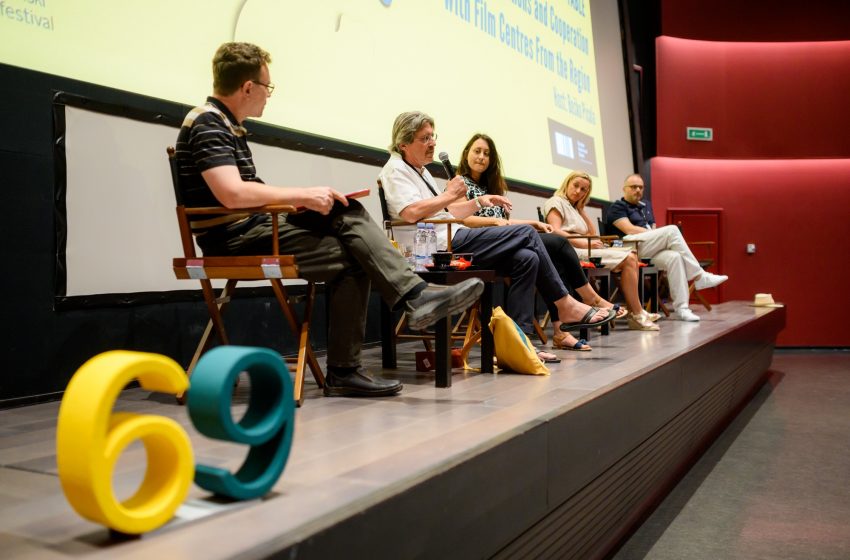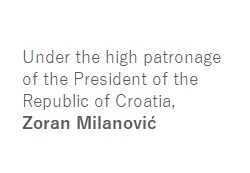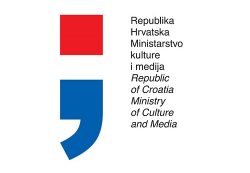Pula Film Festival becoming the most important meeting place of Croatian film and its audience
Promoting Croatian Film Within Our Region Most Important Part of Complex Co-production Process
- News
- 20. July 2022.

Promoting Croatian Film Within Our Region Most Important Part of Complex Co-production Process
Iva Sirotić
The round table on minority co-productions and cooperation of film centres in the region organised as part of Co-production Day at Pula Film Festival gathered directors of film centres from Serbia, Slovenia, Bosnia and Herzegovina, and Croatia, who exchanged experiences and discussed about the issues and obstacles they face in their work. At this year’s Pula Film Festival a total of nine minority co-productions will be screened, of which six in the International Programme.
The importance of co-productions for small film industries is undeniable, especially in the times of inflation that we are faced with, in which the value of approved funds drops from the time of approval to the time of project implementation, making it difficult to complete the financial package of the project. It is a highly complex, but at the same time an extremely important process, in which the two countries of the region that work together most in co-productions are Serbia and Croatia.
The first part of the round table started with the question by moderator Boško Picula, who asked whether film centres are independent from politics, and all of the participants said that in the operational sense, they are, but in the financial sense, not so much. Gordan Matić, director of Film Centre Serbia, said that he doesn’t know of a country where film centres are completely independent from politics, and mentioned France and Italy as one of the large European film industries that feel a lot of political pressure.
Nataša Bučar, managing director of Slovenian Film Centre, mentioned the example of the Czech Republic, where the director speaks about the budget of the film they are planning to make at the Parliament. Antonio Beus, president of the board of the Foundation for Cinematography Sarajevo, said that the situation in Bosnia and Herzegovina is much more favourable in terms of financing than it was pre-pandemic, as their budget has increased and he predicts further increases in the next years.
Our region is very interesting in terms of creativity to countries outside the region, such as Turkey and Italy. A large festival will be held in Istanbul in December with a focus on building co-production connections. Chris Marcich said the financial support from Eurimages, the cultural support fund of the Council of Europe, and from Creative Europe Media are immensely important for successful completion of our projects.
Following a break after the first hour of the round table, the discussion in the second part also saw participation from a part of the audience, increasing the dynamic of the conversation and exchange of experiences.
The directors of film centres agreed that other than harmonising the formal parts of the calls, which are often very sluggish and slow down the process instead of making it faster, it is extremely important to promote the films in the countries of the region. All of the countries have to work on distribution, circulation, and visibility of films individually, but also on the regional level, because it seems that distribution of our films in the region depends solely on the producers, while there are distributors for foreign films. The audience is the essential part of the entire process, because, after all, cinemas are not sold out by festival art films, but blockbusters – films made for audiences, and it is therefore extremely important to find and maintain a path for art house cinema.








